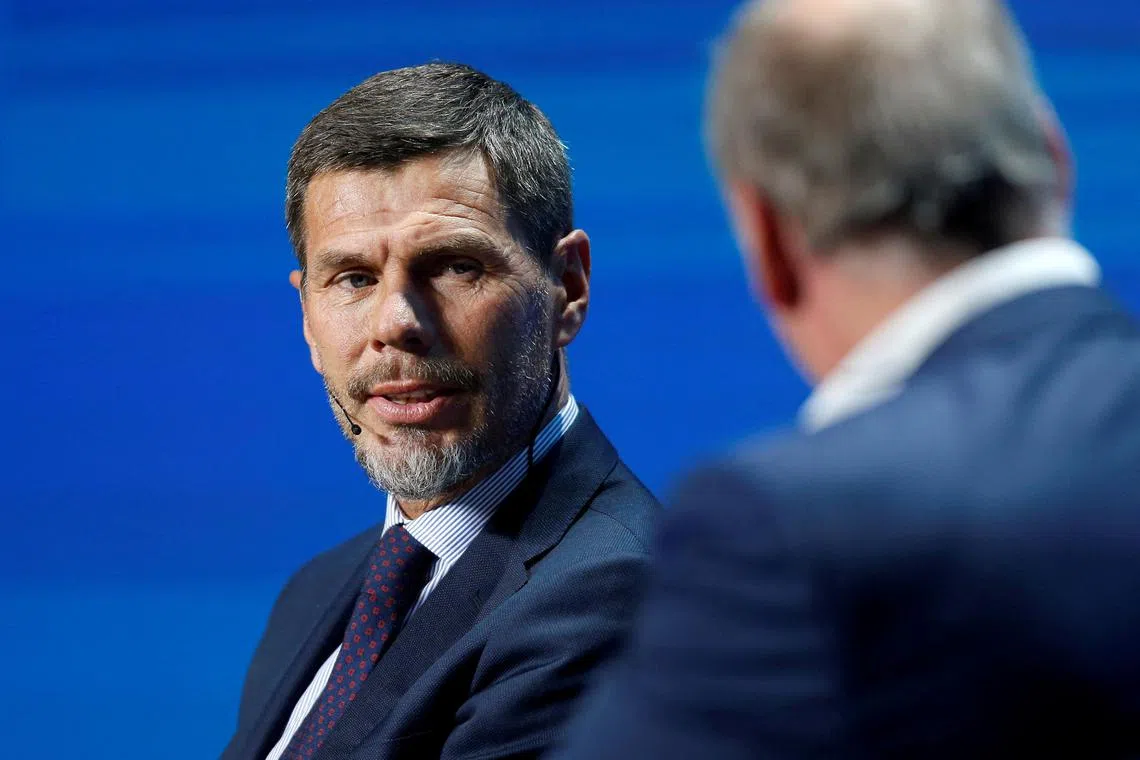Top official’s resignation reveals tension atop European football
Sign up now: Get ST's newsletters delivered to your inbox

Zvonimir Boban’s exit from his role, made public the growing tensions among some of European football’s top leadership.
PHOTO: REUTERS
Follow topic:
NEW YORK – Zvonimir Boban, a top aide and long-time confidant to the powerful president of European football’s governing body, resigned abruptly on Jan 24, a departure that laid bare a deep rift inside the leadership of one of the world’s richest sports organisations.
Boban’s sudden exit from Uefa, which oversees football in 55 nations and organises billion-dollar competitions such as the Champions League and the European Championship, signalled growing disquiet among some of the continent’s football leaders at efforts to significantly change the organisation’s rules.
One of the most contentious revisions under consideration would allow Uefa’s president, Aleksander Ceferin, to remain in his role beyond a 12-year term limit – imposed as part of a suite of reforms enacted after a corruption scandal that shook international football almost a decade ago.
Ceferin, a lawyer, was first elected president in 2016. He was re-elected in 2023 and his new four-year term ends in 2027, meaning a rule change would be required for him to stay beyond.
“Despite having expressed my deepest concern and total disapproval, the Uefa president does not consider there to be any legal issues with the proposed changes, let alone any moral or ethical ones, and he intends to move forward regardless in pursuit of his personal aspirations,” Boban said in a lengthy statement sent to The New York Times.
Boban’s exit from his role as Uefa’s first director of football, essentially made public the growing tensions among some of European football’s top leadership.
Those concerns have been festering since a board meeting in December, when the suggestion of tweaks to the term limits of senior leadership were first proposed.
Uefa – which said on Jan 25 that Boban had left “by mutual agreement” – and Ceferin both did not immediately respond to a request for comment about the circumstances surrounding Boban’s exit.
But Boban, 55, said he now had “no option but to leave Uefa”.
Ceferin, 56, the former head of Slovenia’s football federation, was a largely unknown quantity when he was elected in September 2016.
He has since grown to become one of the most dominant leaders in the sport, controlling an organisation that generates more money than any international body through the Champions League, which produces over €3 billion (S$4.4 billion) in annual revenue.
It also runs the quadrennial European Championship, the second largest national team event after the World Cup.
Ceferin’s sudden ascent was accompanied by moves to curb executive power in football after a corruption scandal, something Boban, one of his closest allies, noted in his statement.
“Ironically, it was the Uefa president himself that proposed and launched a set of reforms in 2017 which were introduced to prevent such a possibility,” Boban added.
“These rules were designed to protect Uefa and European football from the ‘bad governance’ which for years had unfortunately been the ‘modus operandi’ of what is often referred to as the ‘old system’ of football governance.
“The reforms were to football’s great credit, and that of the Uefa president. His shift away from these values is beyond comprehension.”
Ceferin has not said whether his current term will be his last.
If Uefa’s membership approves the rules changes at its annual meeting in February, many insiders expect him to stay much longer. NYTIMES

